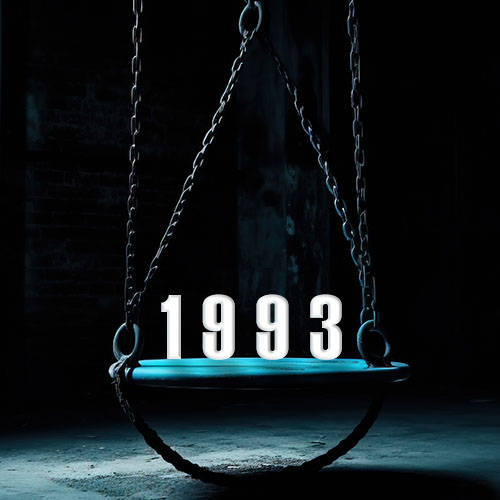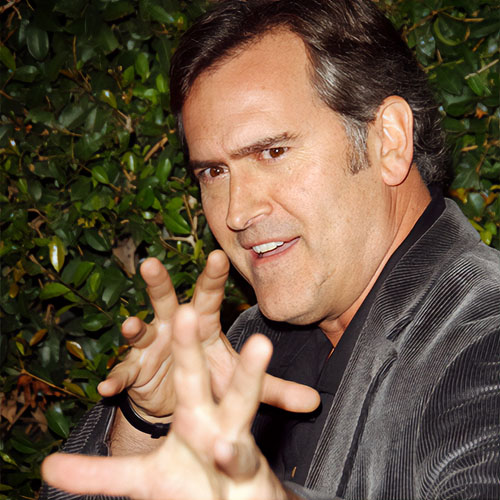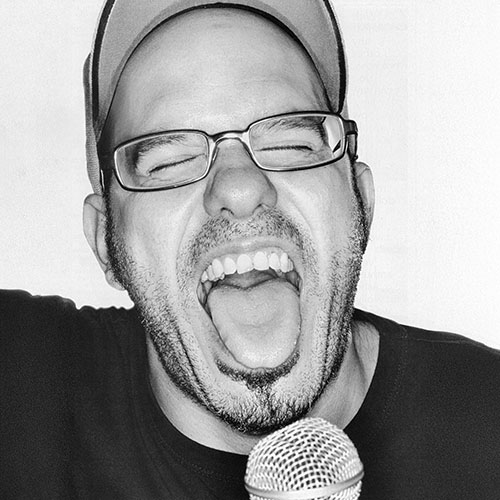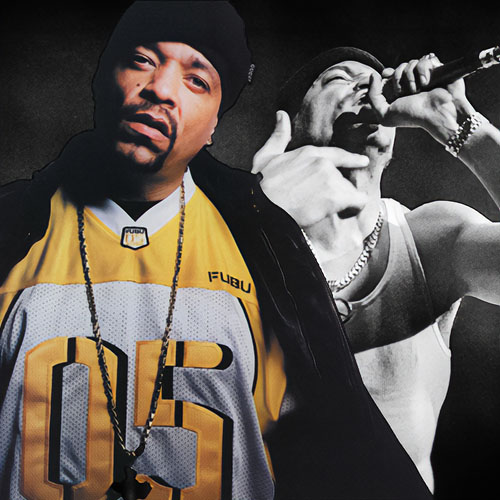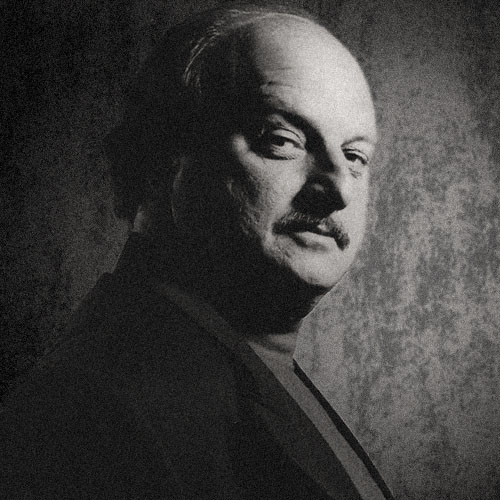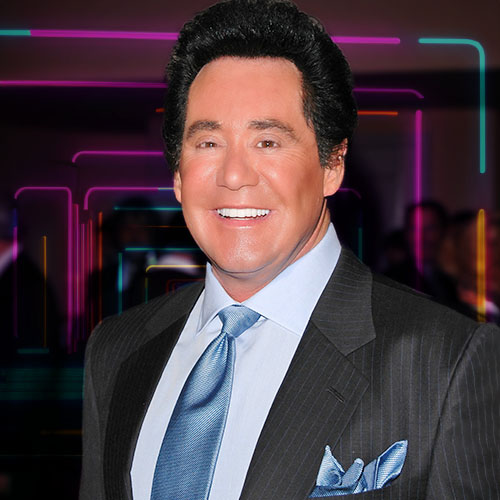Larry Schiller is running down his street in Woodland Hills with a nearly dead rottweiler in his arms. …
Lawrence Schiller
The dog weighs maybe half of Schiller’s bulky 240 pounds, and the 65-year-old bearded writer-producer-director-collaborator-entrepreneur doesn’t look like he can manage what he’s doing. There’s a worried look on his face. His dog had slipped into the backyard swimming pool while Schiller was out, and when he returned, he found the exhausted rottweiler with just his head above the water, his paws bloody from his unsuccessful attempts to get out. Schiller managed to lift the animal out of the pool, but Schiller’s wife was away, none of his assistants was in the house, and his car’s battery was dead. He had no choice but to try to flag down passing cars as he held the dog against his chest. When no one stopped, Schiller went knocking on neighbors’ doors, hoping one would be home to drive him and his dog to an emergency animal hospital. For a man who’d figured out how to rent a helicopter to fly himself into an Alaskan earthquake disaster, and how to hire an off-duty cop to get him around Dallas after Kennedy’s assassination, finding a neighbor to help him save his dog should not seem insurmountable. But as one neighbor after another didn’t answer the door, Schiller felt a mounting sense of helplessness.
He didn’t like the feeling. After all, Schiller is the one who got into O.J. Simpson’s head while Simpson was in jail during his L.A. trial. Schiller convinced the Simpson defense team that a book by O.J. (I Want to Tell You, 1995) would help pay the Juice’s legal bills, then he convinced them again that Schiller’s taking exclusive photos after the verdict would help pay more bills. When Simpson went free to live in Florida, Schiller wrote a book about the trial and turned it into a best-seller (American Tragedy: The Uncensored Story of the Simpson Defense, 1997) and a four-hour network mini-series. Schiller did it again when the JonBenet Ramsey story was hot tabloid fodder with no final outcome; he went to Boulder, Colorado, and wrote a book about the struggles between the district attorney and the police. Perfect Murder, Perfect Town (1998) also became a best-selling book and miniseries.
Schiller learned to turn news into books and then into TV movies — that he himself would produce and direct — when he managed in the late seventies to tie up the rights to the Gary Gilmore story. Gilmore had committed some senseless murders during a nine-month period after his release from prison. He’d also had an involved affair with a young woman named Nicole. Schiller didn’t think he could handle the complexities of that story, so he convinced Norman Mailer to write it. Mailer’s The Executioner’s Song won a Pulitzer Prize in 1979, and Schiller got Mailer to write the screenplay for the TV version. Mailer had single-handedly given him a legitimacy Schiller lacked when he was out there changing the rules of journalism by writing checks for people’s stories. There was the 15 grand he gave Manson family member and convicted murderer Susan Atkins. There was the money paid to Lenny Bruce’s widow that would be instrumental to Albert Goldman’s book, Ladies and Gentlemen, Lenny Bruce (1974). There was the money he paid to victims of tragedies and natural disasters while working for Life magazine.
Schiller had first convinced Mailer to write an essay about Marilyn Monroe for a 1973 book of photographs of the movie star. Then he got Mailer to write the introductory essay for The Faith of Graffiti (1974). After the Gilmore and Simpson books and TV movies, Schiller convinced Russia’s KGB to open their files on Lee Harvey Oswald, and got Mailer to write Oswald’s Tale: An American Mystery (1995). When Robert Hanssen was exposed as a spy who betrayed the FBI, Schiller convinced Mailer to write up the event as a TV movie, and then Schiller used that script to write a 2002 novelization, Into the Mirror: The Life of Master Spy Robert P Hanssen.
But now, holding his dying rottweiler, running down the street like a man possessed, knocking on doors, Larry Schiller wasn’t thinking about the next project, his next business deal, or what Norman Mailer was thinking about his asking Mailer to once again add new material to the Hanssen script. Schiller wasn’t thinking about putting the final touches on Cape May Court House: A Death in the Night, about the dentist who may or may not have strangled his wife and blamed her death on a faulty Ford air bag. He wasn’t thinking about the research coming in about the tragedy of September 11, which he’d planned on turning into another CBS miniseries called First Hours. All he was thinking about was saving his dog.
When a neighbor finally answered the door and saw the frantic look in Schiller’s eyes and the blue color of the freezing dog, Schiller felt his luck had not run out. They got into the woman’s car and got the dog to the veterinarian in time. The author/filmmaker could finally take a deep breath, wipe the sweat from his brow, and smile. Just another piece of drama in the dramatic life of Lawrence Schiller, a man who just happens to find himself in the middle of big stories, from photographing Marilyn Monroe in the nude, to buying the rights to the photo of Jack Ruby shooting Oswald, to doing jailhouse interviews with Ruby or Charlie Manson or Susan Atkins or Gary Gilmore or O.J. Simpson. When a big story breaks, you expect to find Schiller no longer lurking in the shadows but out there in the open, competing with the TV networks and movie studios, laying out a dozen reasons why he should be the one to secure the rights and haggle the best deal.
What’s the most common misperception of you in the media?
People think that I’m a big deal-maker and it’s about the money. Money is not what drives me. I really don’t give a damn about the money. It’s about the challenge.
You’ve admitted to making a lot of mistakes and doing things that you deserved to be criticized and torn apart for. For what, exactly, do you deserve to be criticized?
Certainly my method of doing business in the early part of my career. My boldness, my roughness with people. Using money in places where I shouldn’t have — I didn’t see the long-run effect from a public-relations point of view. I paid $5,000 to get a story for Life magazine, and people started talking that Larry Schiller uses money. I was criticized for giving Susan Atkins $15,000 — the money was actually put into a trust for her child. I snuck a camera in to take a picture of Gary Gilmore [before he was executed] to preserve history — is that something I should be proud of? I don’t know. I broke the law to do it.
Which criticism hurts you the most?
That I’m purely a hustler and not an artistic person.
“O.J. called me up screaming… and I felt the animalist heat of his anger, and that was the only moment that I thought I ever experienced what he was capable of doing.”
The spotlight on you as a hustler was glaring when it came out that you were working with O.J. Simpson on his Jailhouse book I Want to Tell You.
I knew the minute I started I Want to Tell You that it was going to cast a shadow on me. I knew I would have to live under that shadow, and that people would use that. But I felt if the next thing and the next thing after that were credible enough, the sun would shine and the shadow would not be so deep. As time has gone on, there’s less mention of I Want to Tell You and more of the other things.
Have you had any contact with O.J. since your book came out?
Several times, but not in the last few years. The first interchange was during the civil trial, after the book was published. I saw him in a restaurant, and he came over and put his arm around me, very friendly. I was sitting with [Manson prosecutor] Vincent Bugliosi. The last time was just before O.J. filed a lawsuit against me. That was about the movie. It was thrown out of court.
You had your doubts about O.J.’s guilt until you experienced his rage — what was the phone call that shook you up?
He called me up screaming about something he had heard about out of context, and I felt the animalistic heat of his anger, and that was the only moment that I thought I ever experienced what he was capable of doing.
Your most current project is Cape May Court House — a true-crime story involving a dentist, his dead wife, and the Ford Motor Company When you optioned the New Yorker story for $15,000, what were you thinking — movie, book, television?
Feature movie, right away. That article is a motion picture. I went to my agent at ICM and was told it would take me a year to make a development deal, it would take a year and a half to write a screenplay, then it would be rewritten, then it would go out to a director, then a star — it could lock me in for five years. So I said to myself, “They’re right. I’m 65, why do I want to gamble five years?” So I drove with my son Anthony to Cape May Court House [New Jersey] and went to stores and asked people about Dr. Thomas, just kind of smelled the town. We drove away and I said, “This is a book and a television movie.” I sold it to CBS and to HarperCollins on the same trip. My arrangement with CBS is that I have the option to produce and direct anything that I pitch them.
Lay out the whole story in just one paragraph.
In 1999, Eric Thomas, a dentist, sues the Ford Motor Company for wrongful death. Ford reads the autopsy and they see a phrase that they’ve never seen before in an air-bag-related death: asphyxia. Asphyxia means breath being cut off, like from a heart attack, chest compression, a karate chop, strangulation, a spinal-cord break. But not from an air bag. So they asked some experts to look at the autopsy, and they came back saying it was manual strangulation. It was the hemorrhaging in the eyes which only comes about from strangulation. So there were two things Ford could do: try and settle the case and let it go away; or present that as a defense, and if they lose, they might be liable for big damages. So they got experts and found that there was a pretty good chance that somebody strangled the woman. Then they discovered he had an affair prior to the death of his wife. And that he had made 140 phone calls to this other woman. Then they heard from the in-laws. So they saw a way of destroying his credibility.
Which questions about the case perplexed you?
Was Ford intentionally destroying this man’s life just to win a case? And does big business screw around with discovery so that the little lawyer finally gives up because he can’t get what he needs to win the case? This case was a window in which to deal with this.
[Editor’s note: In February 2002, New Jersey prosecutors decided not to file criminal charges against Thomas, saying there was insufficient evidence to sustain a homicide charge. Thomas’s wife’s family then filed a civil lawsuit against him, alleging that he killed her. That lawsuit was still pending at press time for our initial publication, and we could find no records of any reolution without access to legal databases..]
“People think I’m a big deal-maker and it’s about the money… I don’t give a damn about the money. It’s about the challenge.”
Your next three projects are all television miniseries that you will direct, based on your last two books and the September 11 tragedy. Which one comes first?
Into the Mirror, about the FBI spy Robert Hanssen. Then I’ll direct Cape May Court House. And then First Hours.
So the 9/11 story is being put off until you get these others done?
It’s not being put off. Do you realize the research involved in getting people to talk? Do you realize how hard that is, to get the right information? I’m taking my time. I’m going to use the Hanssen film to prove to those people in government that I can handle something very sensitive properly.
With everybody vying to get their own September 11 dramatizations on a network, how did you get the nod?
I called CBS, but I didn’t have an approach. Then ICM set up a meeting at NBC, but I still don’t have a story in my mind. I start to tell them about how, out of the Hanssen thing, I came to meet a certain girl whose husband was the head of counterterrorism in New York. I got to know them. And when 9/11 happened, I continued that relationship. Just like in Hanssen, there are things about 9/11 that I know about that I don’t think anybody else knows about, that would make an incredible movie and would make news. But [NBC] stopped me dead: They weren’t interested in 9/11. John Frankenheimer had pitched Flight 93, so had John Avildsen. I said, “I understand that those are great directors, but I’m not interested in Flight 93, we can’t invade those people’s privacies. I’m not going to decide which one was a hero and which one wasn’t. What I think happened on 9/11, as I understand it, is very close to what happened in Dr. Strangelove. We were faced with something we knew could happen, but we never believed it would happen. I want to do Dr. Strangelove.” I started making this up as I was talking to them. I laid out my vision of the picture, all extemporaneous: shooting it in real time, six different locations, shooting them all separately. Never in the planes, but you hear what’s going on through speakers. The story is about the futility of people being faced with things and how they deal with it. It’s a human story. By the time I got back to my office, CBS and NBC have both called ICM and said they wanted it. At the same time, somebody else at ICM had had dinner with someone at ABC who had heard about my pitch and they wanted it.
So was there a bidding war?
No. Contrary to my reputation, I have never made a deal based on money. I don’t have auctions. I negotiate with one person at a time, in good faith. If I don’t believe it is fair, I will move on. I went with CBS because I had other projects there.
Regarding your Robert Hanssen mini-series, neither you nor Norman Mailer, who wrote the screenplay, ever talked to Hanssen. Yet on 60 Minutes you claimed to have delved deeply into Hanssen’s soul. How?
Because we spoke to a lot of people who had a lot of conversations with him over a lot of years. And we have a lot of experience in dealing with people who have antisocial behavior. We both have certain novelistic skills — Mailer’s are certainly much better than mine — but that’s sometimes more real than reality. I think we extrapolated very close to what the truth potentially could be.
Critic Howard Rosenberg took after you guys in the L.A. Times: “You sense here the genesis of another of those classic docudramas that are sometimes fun to watch but suspect as history in critical areas while providing facile insights into moral ambiguity.”
I never said the Hanssen film is going to be a recreation of history. It’s going to be as close to the truth as perhaps A Beautiful Mind was — that wasn’t all the truth, but you learn a lot from seeing it. If I can come anywhere close to what A Beautiful Mind is, I will give my audience an experience that they didn’t expect to have, and they will walk away being more educated about human nature. My mandate is not to recreate factually every moment of every single day, because that might be pretty boring.
Again on the Hanssen story, what’s the most devastating secret that Robert Hanssen sold?
In my opinion, the entire plan for the U.S. continuity of government if attacked by a foreign power. How the U.S. government, infrastructure and otherwise, would continue to exist at the time of an attack. It’s where the president goes, what the vice president does, how do they control the highways, what do they do at the airports, et cetera. He gave that out in 1989; by the time of 2001 and 9/11, some of it was out of date, but I’m sure a lot of it wasn’t.
How much real damage occurred?
The deaths of many people. The loss of expenditures of large amounts of money that were invested in technology that was compromised. It didn’t change the outcome of the Cold War, which was decided before he decided to spy. In 1985, when his real spying started, we already knew that we had won the battle; we’d bankrupted the Soviet Union, and that was one of his rationalizations for giving things away — that it would make no difference.
Was Hanssen motivated mostly by money?
The trigger was money, but not the motivation. None of the other books talk about his horniness, about his masturbation, about how many times he ejaculated before or after he had sex with his wife. None of them talk about his sexual activity within hours of his spying.
Though based on a real story, Into the Mirror was your first “novel.” Where’d you get the balls?
I decided to write this book based on Mailer’s screenplay. Seventy-five percent of the dialogue is his. I was only going to write the narrative and the subtext.
It’s quite an accomplishment for you, to be sharing a book cover with Mailer.
No, it’s not. If Norman were here, he’d say it’s quite an accomplishment for him. Because we’ve gotten to a point in our work in which sometimes I write and he does certain things, and sometimes I do certain things and he writes. I don’t look at it as a collaboration, though he has called me a collaborator. I see it as he and I going out and having a lot of fun. We scream and holler and argue with each other.
Mailer has said that you’ve changed more than any other person he knows. What did you change from?
Listening more. Listening to people I’m interviewing, listening to other people’s point of view, understanding what is equitable.
You’ve somehow managed to get the trust of people in the news; you get to know people who are usually wary of letting someone like you into their lives. Is it because you open yourself up to them and show them your vulnerable side? And has there been a price you’ve had to pay?
Well, it cost me my first wife. The Merry Pranksters jumping in my swimming pool at 3 A.M., using my mailbox as a drop-off place for acid. The Who spending all night in my backyard playing until 3 A.M. My first wife was more conservative than my lifestyle. Mailer characterized me a little different later on when he said, “Larry tells you what his motives are so he can move on to other motives.” What I think is, Larry tells you who he is and what he is so that you’ll either accept him the way he is, or you’ll move on to somebody else. So when I dealt with all of these people, I told them where I lived and what I did and who I am. It’s my way of making up for my insecurity. It’s my way of disarming people by ingratiating myself, by not having a shield in front of myself when I work with them.
You speak about your insecurities, which may be what motivates you to go after difficult stories. Are you ashamed of anything you’ve done to get a story?
A lot of things when I was younger — some of the half-truths I told, telling someone just that part of the truth or the facts that will make them agree to do something with you. But there are other things that you know if they knew, it would send them away.
But why be ashamed of that? It’s part of journalism.
It wasn’t necessary. And it made my mother make statements which I really didn’t like. She tried to cover up her own feelings about it by saying, “Well, at least they spelled Larry’s name right.” I knew she was very hurt by some of the things said about me. I went through this period when I was getting a lot of criticism. I was operating out of insecurity because I wasn’t being accepted as a staff member on certain publications that I should have been. I was being paid more than staff people, and I was subconsciously punishing them by demanding such high amounts of money. I started as a photographer when I was 16. By the time I was 17 I’m published in Life magazine. You don’t think my dream was to be on the staff of Life, with all those great photographers? I was getting Life covers, doing essays, but I wasn’t accepted as part of the fraternity. There was something in my personality, in who I was, a flaw in me, which kept me out. Then this disaster happens when I’m hired by Life and I’m either fired or I quit the same day; then I was hired by the Saturday Evening Post for twice what Life was giving me, and I was very depressed.
So this is what makes you run, then. From early rejection, you had something to prove.
Yeah. I was never hired as a staff member for Life magazine. And I felt the rejection.
Can you talk about your problem with dyslexia?
I didn’t know I had dyslexia until after the nineties. It takes me so long to read, and I can’t retain what I read. I was in Russia writing some things and getting numbers mixed up and somebody asked if I had dyslexia. I didn’t even know what it was. I went to a doctor and was put through tests, and found out I had it. Like I have one eye — I don’t know anything else, I don’t know how anyone else sees.
How’d you lose sight in one eye?
I was six or seven and I looked up a dumbwaiter in Brooklyn and a woman threw down an umbrella. My retina was severed.
Are you able to read any books for enjoyment?
I have no desire to. Isn’t that sad? I don’t have any time. I’ve got five kids, grandchildren, projects …. I’m on a fucking treadmill.
What do you know about yourself that other people would be surprised to find out?
That my being overweight is an asset — it disarms people. Especially women when I interview them.
If there’s a heaven and hell, would you expect to see most of the people you’ve focused on in your professional life when you’re all dead?
That tells you where I’m going to be. No, I don’t think I’m going to see very many of them, if there’s a heaven and hell. Because I think the positive things that I’ve done will be considered equally as well as the negative things that I’ve fallen prey to.
Perhaps not surprisingly, Lawrence Schiller has created his own site that remains active today. Perhaps quite surprisingly, he tells his own story better than we could, so we’re just going to be quiet now. Weird, right?
















